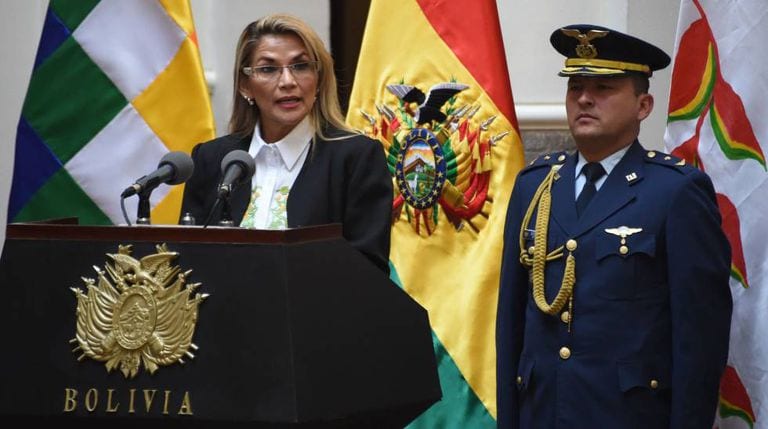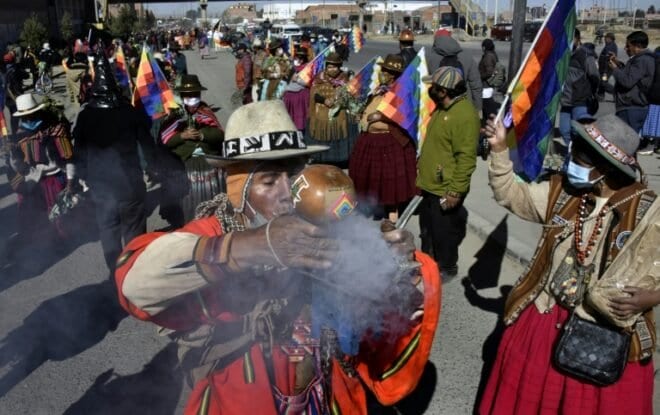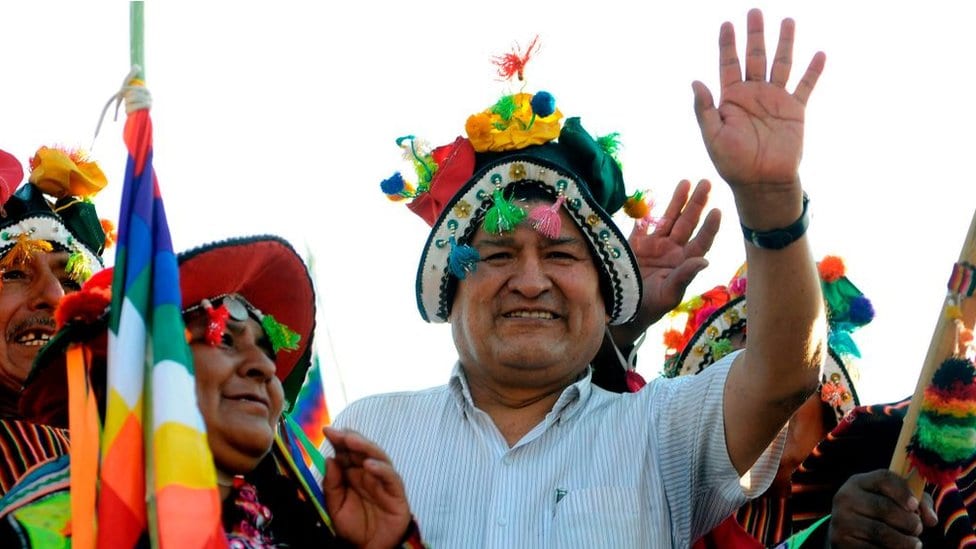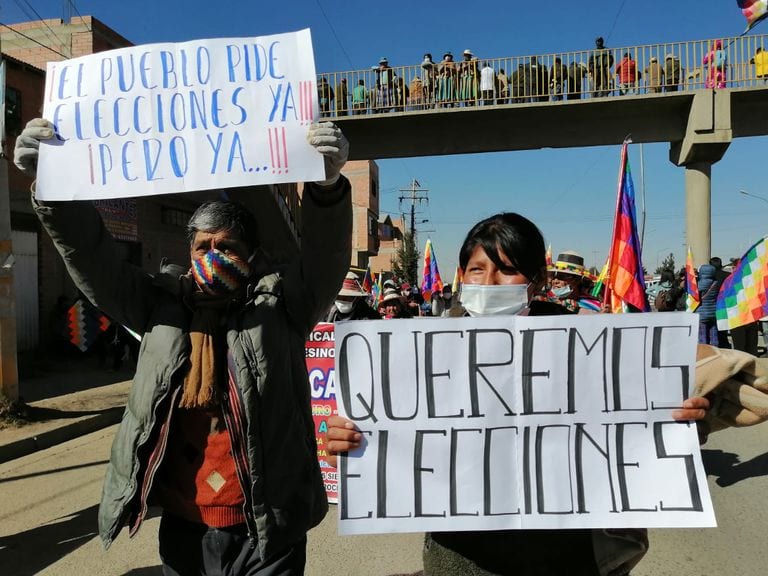While in early July, the WHO representatives said that America is the world epicenter of the coronavirus pandemic, and by October 1, the number of victims for the entire region could almost triple to 637.000, social convulsions and political conflicts have exacerbated in a number of countries. The most discussed topic of the outgoing week was the next postponement of the date of the General Elections in Bolivia. How is the electoral process going in this Latin American country against the backdrop of the pandemic? What was the real reason for this decision of the Bolivian government?
Turning to the history of the issue, it is worth recalling that as a result of the resignation of the Bolivian President Evo Morales (Spanish – Juan Evo Morales Ayma) on November 10, 2019, which was caused by accusations of falsifying the results of the first round of voting on October 20, the transitional government came to power in led by the former senator Jeanine Áñez (Spanish – Jeanine Áñez Chávez). New elections in Bolivia have been scheduled for May 3, 2020. As part of the electoral process, citizens of the country must elect a president, a vice president, 130 deputies in the lower and 36 senators in the upper chambers of the Plurinational Legislative Assembly.
However, the epidemiological situation that has developed in the country as a result of the outbreak of the COVID-19 virus has made its own adjustments to the electoral “calendar” of Bolivia. First, the transitional government postponed the general elections to August 2, then to September 6, and on July 23, the President of the Supreme Electoral Court of the Latin American country, Salvador Romero (Spanish – Salvador Romero Ballivián), announced that the timing of the first round of voting in Bolivia was again shifted – now by October 18.

The supporters of the former President Evo Morales and representatives of other political forces believe that the reluctance of the transitional government of Bolivia to hold general elections on the date set by the parliament may be associated not only with the epidemiological situation in the country, but also with an attempt to postpone the transfer of power. According to a public opinion poll conducted in late June – early July by the Latin American Strategic Center for Geopolitics (Spanish – Centro Estratégico Latinoamericano de Geopolítica, CELAG), Luis Arce (Spanish – Luis Alberto Arce Catacora), the presidential candidate from the party “Movement to Socialism” (Spanish – Movimiento al Socialismo, MAS), headed by the former leader of Bolivia, leads the electoral race with 41.9% of the vote. The second place is taken by Carlos Mesa (Spanish – Carlos Diego Mesa Gisbert) from the Social Democratic Party “Civic Community” (Spanish – Comunidad Ciudadana) with a score of 26.8%, and the third place is taken by the current head of state from the political alliance “Together” (Spanish – JUNTOS) Jeanine Áñez with 13.3% of support.
In early March, it became known about the first two cases of infection with the COVID-19 virus in Bolivia. At the moment, according to the indicators of the Bolivian Ministry of Health, more than 71 thousand people have already been infected with the coronavirus, more than 2.6 thousand Bolivians have died. In response to the difficult epidemiological situation in the region, the transitional government declared a state of national emergency in the country. According to a number of political analysts, this decision is also associated with the possibility of obtaining a loan to combat the consequences of the COVID-19 coronavirus pandemic. The corresponding decree of the current authorities was published on the website of the official newspaper of the Bolivian government early last week. The document also notes that the Ministry of Economy and Public Finance intends to apply to the Central Bank of Bolivia for a loan in favor of the state treasury in order to introduce economic measures aimed at combating the consequences of the pandemic. The amount of the loan is not specified in the decree.

In addition, last week a parliamentary commission in the Bolivian lower chamber of the parliament, where the majority is still held by the supporters of ex-President Morales, rejected a government-submitted bill to accept the country a $ 327 million loan, which the IMF approved to help the Latin American country fight the pandemic. According to the parliamentarians, obtaining such a loan will inevitably lead to the budget cuts and the loss of the country’s financial sovereignty.
After the announcement of the news about the next postponement of the general elections in Bolivia, various social movements announced that from July 28 they will begin to carry out peaceful protest marches in several regions of the country against the change in the electoral “calendar”. The transitional government interpreted such a statement as an attempt by representatives of the “Movement to Socialism” party and supporters of the former president to start riots and conduct political propaganda in the context of the sanitary crisis that has developed in Bolivia as a result of the sharp increase in the number of infected with the COVID-19 virus.

Either way, the massive protests that began in several departments and opinion polls have already demonstrated that the “Movement to Socialism” Party and the former leader continue to enjoy great support, especially among the rural population and the poorest social classes. Meanwhile, the acting president is acting in a way that is unlikely to arouse sympathy with Morales’ electorate. The harsh suppression of protests by state power structures is still a characteristic feature of a split in society.
It should be noted that after coming to power, Jeanine Áñez quickly created the transitional government, which practically did not include representatives of the country’s indigenous population (Quechua, Aymara, Guarani, etc.), but the new established elite is very widely represented. Evo Morales, on the contrary, as the first representative of the indigenous people (Aymara) as head of state, relied on precisely such an electorate. In addition, the biography of the politician, who came from a poor family, did not have a completed secondary education, was engaged in the cultivation of coca, and protected it as a national treasure, also contributed to the support among the peasant indigenous population. And although today, by law, he will not be able to run, if the “Movement to Socialism” party maintains this level of support, Bolivia would again face protests and, most likely, a new change of government.


